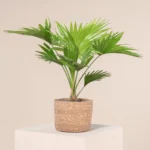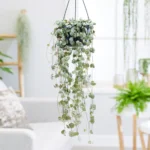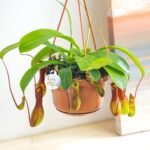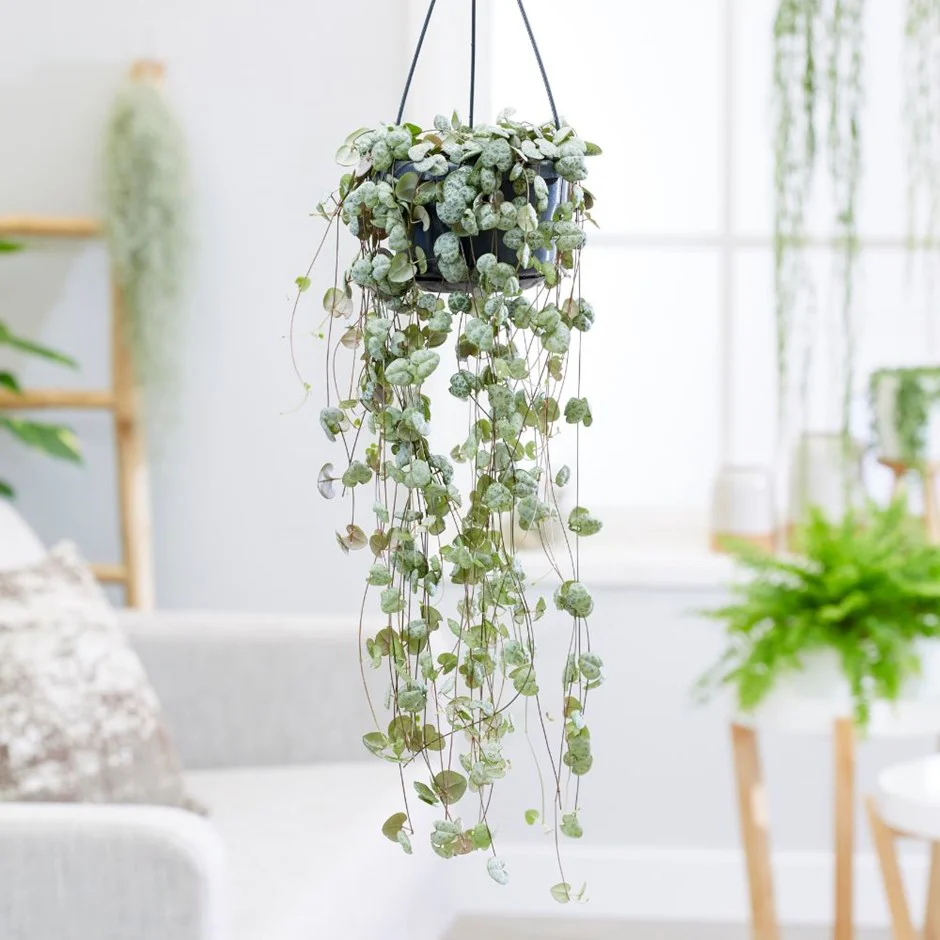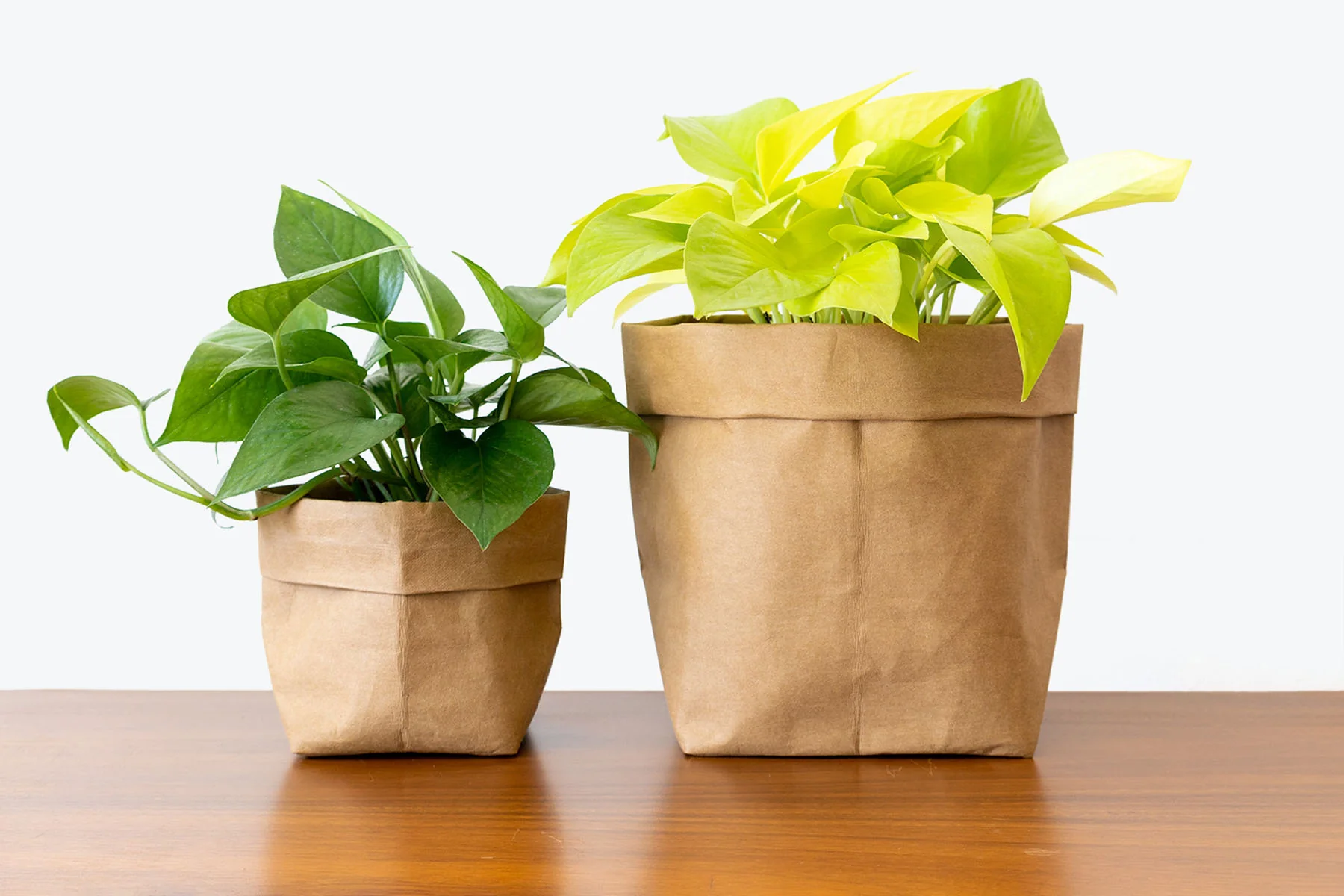Categories: Houseplants, Trailing Plants, Low-Maintenance Plants, Air-Purifying Plants, Beginner-Friendly Plants
Jade Pothos, Epipremnum aureum, Devil’s Ivy, easy houseplants, trailing plants, indoor vines

Jade Pothos: Mastering the Care of This Adaptable Green Beauty
Introduction
Meet the Jade Pothos (Epipremnum aureum ‘Jade’), a resilient and attractive houseplant that’s perfect for both novice and experienced plant enthusiasts. Known for its heart-shaped, glossy green leaves and trailing vines, the Jade Pothos is a variety of the popular Golden Pothos or Devil’s Ivy. In this comprehensive guide, we’ll explore everything you need to know about cultivating and caring for this versatile plant.
History and Origin
The Jade Pothos is a cultivar of Epipremnum aureum, a species native to Mo’orea, a part of French Polynesia. The genus Epipremnum belongs to the Araceae family, which includes other popular houseplants like Philodendrons and Monsteras.
In its natural habitat, Pothos can grow to enormous sizes, climbing up trees and developing large, fenestrated leaves. As a houseplant, it remains more compact but still offers impressive growth and adaptability.

Plant Description
Jade Pothos is characterized by:
- Heart-shaped leaves with a glossy texture
- Solid green coloration, unlike variegated Pothos varieties
- Trailing vines that can grow several feet long
- Aerial roots along the stem that aid in climbing
- Mature plants can reach 20-40 feet in length in ideal conditions, though they’re usually kept much shorter indoors
Plant Care
Light Requirements
Jade Pothos is incredibly adaptable to various light conditions. It thrives in medium to bright indirect light but can tolerate low light areas. Avoid direct sunlight, which can scorch the leaves.
Watering Needs
Allow the top 1-2 inches of soil to dry out between waterings. Water thoroughly, ensuring excess water drains away. Reduce watering in winter. Jade Pothos is drought-tolerant and can recover from occasional neglect.
Humidity
Adapts well to average home humidity levels. Higher humidity will promote fuller growth, but it’s not essential.
Temperature
Thrives in normal room temperatures between 60-80°F (15-27°C). Can tolerate brief periods outside this range but protect from cold drafts and temperatures below 50°F (10°C).
Soil Requirements
Use a well-draining potting mix. A standard houseplant potting soil with added perlite works well. Ensure the pot has drainage holes.
Fertilizer
Feed monthly during the growing season (spring and summer) with a balanced, water-soluble houseplant fertilizer diluted to half strength. Reduce or stop fertilizing in fall and winter.
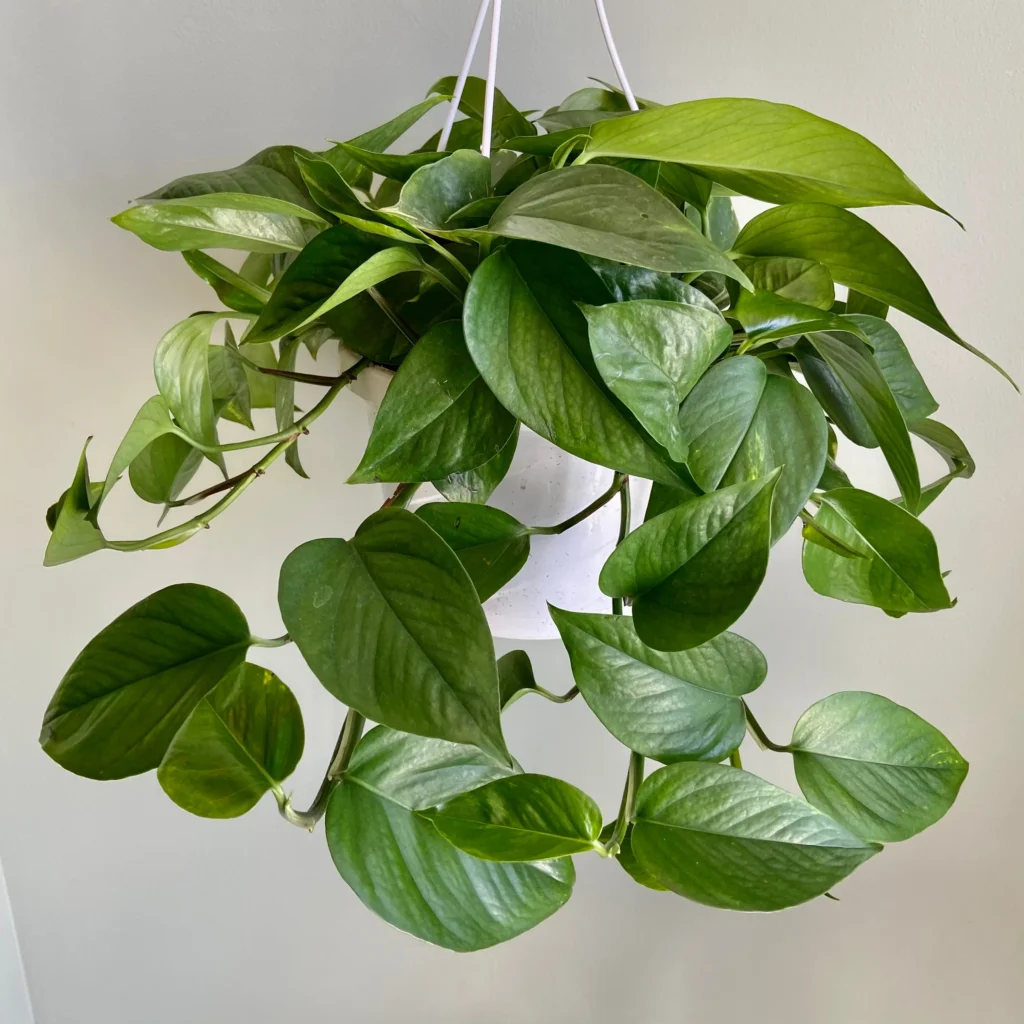
Pruning
Prune regularly to maintain desired shape and size:
- Use clean, sharp scissors to cut just above a leaf node.
- Remove any yellow or damaged leaves.
- Trim long vines to encourage bushier growth.
- Pruned sections can be used for propagation.
Propagation
Jade Pothos is incredibly easy to propagate:
- Water propagation:
- Cut a stem with 2-3 leaves, ensuring there’s a node.
- Place in water, changing it weekly.
- Once roots are 1-2 inches long, plant in soil.
- Soil propagation:
- Take a cutting with 2-3 leaves and a node.
- Dip the cut end in rooting hormone (optional).
- Plant directly in moist potting mix.
- Keep soil lightly moist until new growth appears.
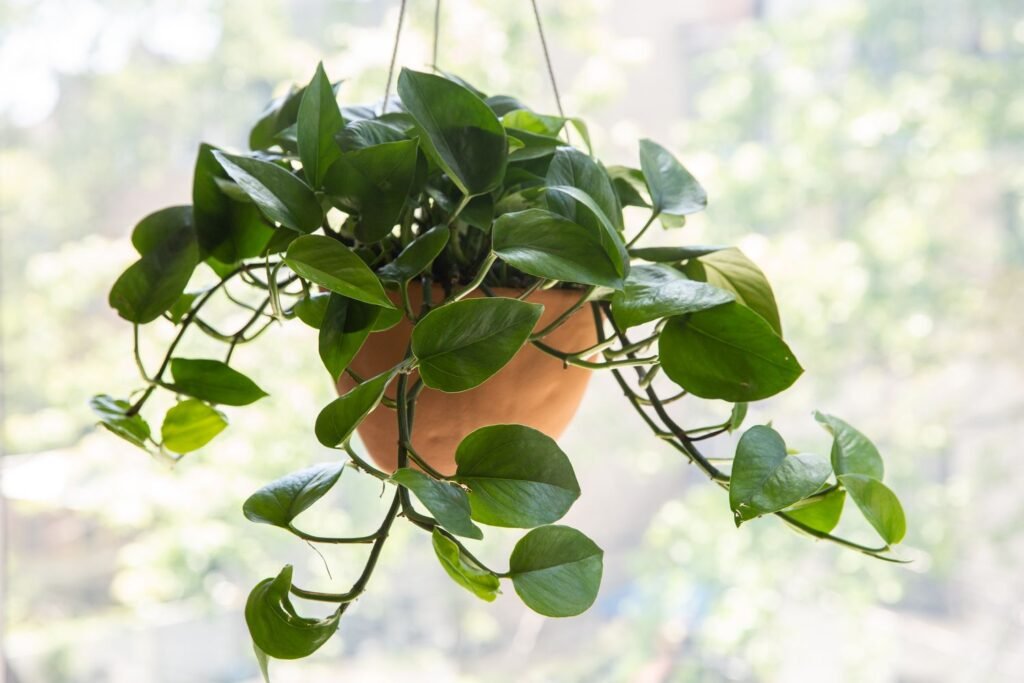
Potting and Repotting
Repot every 1-2 years or when roots start growing out of drainage holes:
- Choose a pot 1-2 inches larger in diameter.
- Use fresh potting mix.
- Water thoroughly after repotting.
- Repot in spring for best results.
Training and Support
Jade Pothos can be grown in various ways:
- As a trailing plant in hanging baskets
- Trained to climb a moss pole or trellis
- Allowed to spread as a ground cover (in terrariums or large pots)
Provide support early if you want it to climb.
Pests and Diseases
Common Pests
- Mealybugs
- Spider mites
- Scale insects
Treat infestations with insecticidal soap or neem oil.
Diseases
- Root rot (from overwatering)
- Leaf spot diseases
Prevent by avoiding overwatering and ensuring good air circulation.
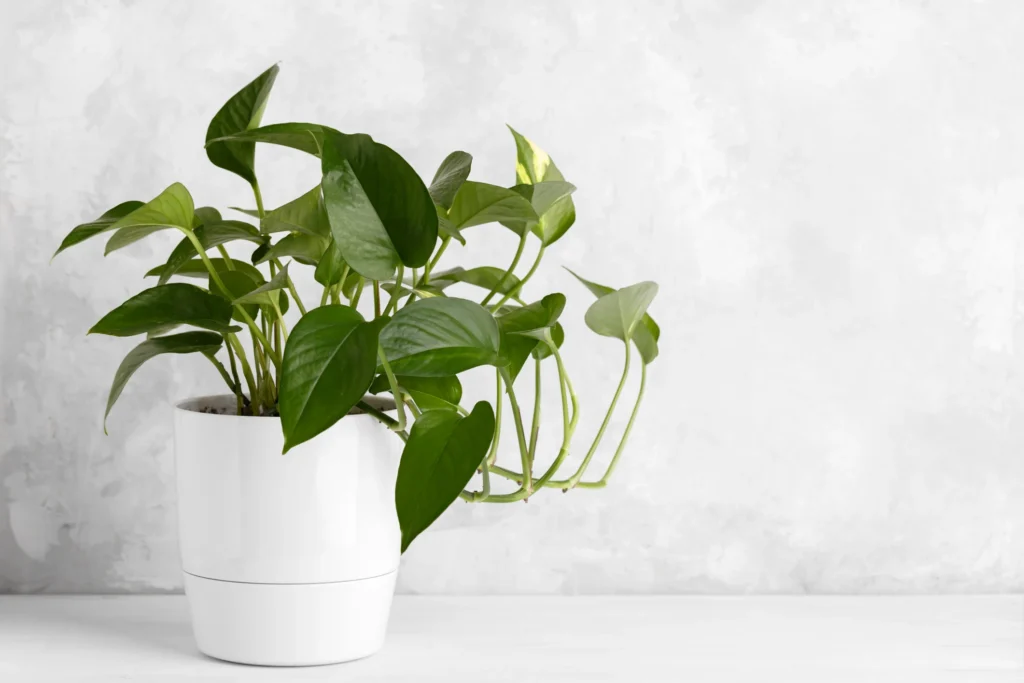
Common Problems
- Yellowing leaves: Often due to overwatering or poor drainage.
- Brown leaf tips: Usually indicates low humidity or inconsistent watering.
- Leggy growth: Insufficient light. Move to a brighter location.
- Slow growth: Could be due to low light, underfeeding, or being rootbound.
Benefits and Uses
- Air purification: Removes indoor air pollutants like formaldehyde and benzene.
- Versatile decor: Suitable for hanging baskets, shelves, or as climbing plants.
- Low maintenance: Ideal for busy individuals or those new to plant care.
- Stress reduction: Like many houseplants, it can help reduce stress and improve mood.
FAQs
Is Jade Pothos toxic?
Yes, all parts of the plant are toxic if ingested by humans and pets due to calcium oxalate crystals. Keep away from children and animals.
How fast does Jade Pothos grow?
In ideal conditions, it can grow up to 12-18 inches per month during the growing season.
Can Jade Pothos be grown in water permanently?
Yes, it can thrive in water long-term. Change the water regularly and provide liquid fertilizer occasionally.
Why isn’t my Jade Pothos variegated?
Jade Pothos is a solid green variety. For variegation, look for varieties like Golden Pothos or Marble Queen.

Tips for Success
- Rotate the plant regularly for even growth.
- Clean leaves with a damp cloth to remove dust and maintain their glossy appearance.
- In low light, growth will be slower and vines may become leggy. Prune to maintain shape.
- For fuller growth, pin vines back into the pot or propagate and add more plants to the pot.
- Use a moisture meter if you’re unsure about watering needs.
Quick Facts
| Attribute | Detail |
|---|---|
| Scientific Name | Epipremnum aureum ‘Jade’ |
| Common Names | Jade Pothos, Devil’s Ivy |
| Native Region | French Polynesia (cultivated variety) |
| Plant Type | Evergreen vine |
| Height/Length | Up to 20-40 feet in ideal conditions |
| Light Needs | Low to bright indirect light |
| Water Needs | Moderate, allow to dry between waterings |
| Humidity | Adaptable to average home humidity |
| Toxicity | Toxic to pets and humans if ingested |
| Propagation | Stem cuttings in water or soil |
| Growth Rate | Fast in optimal conditions |
Conclusion
Jade Pothos is a fantastic choice for anyone looking to add a touch of green to their living space. Its adaptability, easy care requirements, and air-purifying qualities make it a top pick for both beginners and experienced plant enthusiasts. Whether you’re growing it as a trailing plant, training it to climb, or using it to fill out a mixed planter, Jade Pothos is sure to bring life and beauty to your home or office. With the care tips and information provided in this guide, you’re well-equipped to grow and nurture this versatile houseplant. Happy growing!
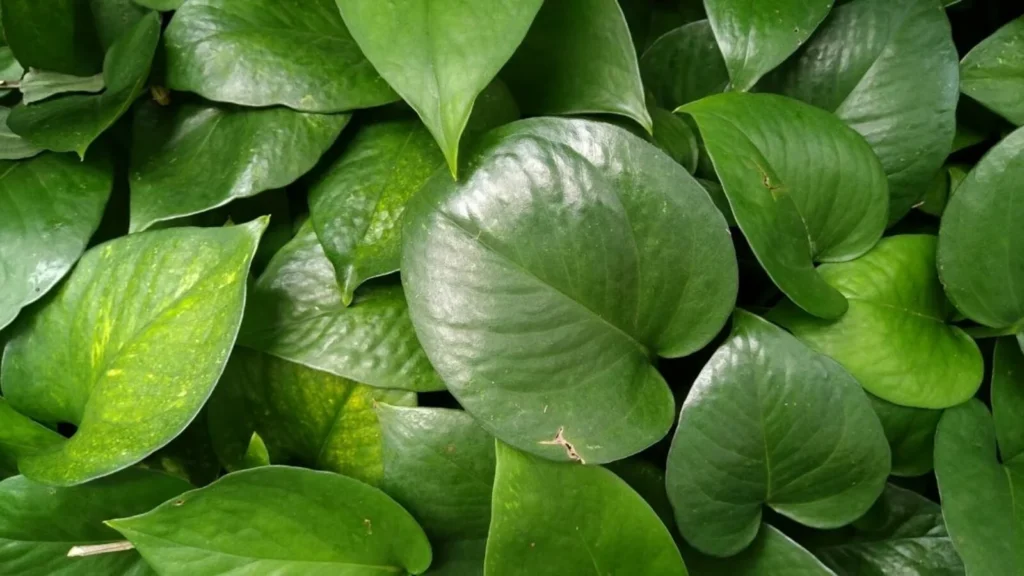
Views: 7


